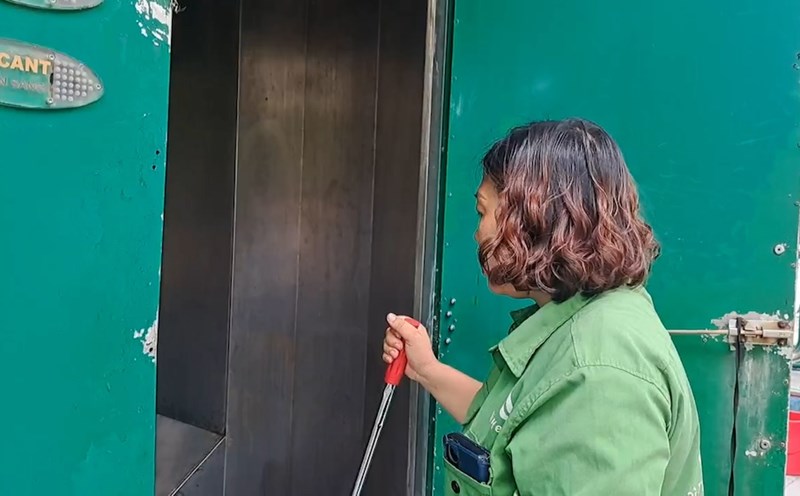Nearly a decade of working and the times the "time" of the repairman
The NVSCC system in Hanoi, although improved, still has many points that have been stained by time. In crowded street corners, the image of diligent cleaning women has become familiar. They are the ones who directly face the current state of deterioration and awareness of users every day.
Having been attached to a NVSCC in Dong Da district since 2013, Ms. Nguyen Thi Kim Xuan has become very familiar with every small corner, every brick that has become old at her workplace. She said that the work started very early and ended when the city was lit up. "I open at 6am and close at 6pm. Every time I come, I clean and sanitize to serve the people," Ms. Xuan shared.
With high frequency of use, incidents such as culverts and odors are inevitable. However, instead of just waiting, Ms. Xuan and her colleagues often have to find a way to fix it themselves.
"Sink accidents happen often, but we try to fix them. When it is too heavy, the company will call a suction truck to handle it," said Ms. Xuan.
Not only did she deal with traffic jams, but minor damages such as swaying doors and leaking water pipes also came to her hands. "Because I am here all the time, it is rare for people to throw tinh hoaxes, causing serious congestion," Ms. Xuan confided. Her job is not simply to clean, but also to guard, look after and preserve an increasingly degraded public asset.
Providing benefits and constant worries
Sharing the same concern, Ms. Ha, another female worker working at an NVSCC near the bus station, said that the project where she worked was at the time of the first installation, so it showed many limitations. "I have been working here since this toilet was first built. This is an old model, so it has many errors, and is now degraded a lot," Ms. Ha sighed.
Located in a location with a large number of people passing by, the pressure on Mrs. Ha's shoulders is even greater. She almost had no time to rest. "This place is near the bus station, so it is very crowded. I have to clean up every day."
Although the deterioration is clear, according to Ms. Ha, major repairs and upgrades do not happen regularly. "For a long time, I don't remember when they last made a big change. There are very few inspections," Ms. Ha shared. Therefore, workers like her became the main "worksmen". When asked about the smell problem, Ms. Ha frankly said: "Working here, of course, there must be a smell. At the gas station, the company allows vehicles to come and smoke once every few months."
The story of Ms. Xuan and Ms. Ha is a realistic slice of the work of women who are quietly preserving the civilized face of the city. They not only face the hardships of manual labor, but also have to shoulder the responsibility of maintaining an increasingly degraded infrastructure.
Earlier this year, Chairman of the Hanoi People's Committee Tran Sy Thanh chaired an important meeting on environmental sanitation quality. The report at the meeting showed that the whole city has 351 public toilets but still does not meet the demand, at the same time many works have degraded, peeled, rusted, affecting the urban beauty.
Faced with this reality, the Chairman of the City People's Committee has requested departments and branches to encourage restaurants, hotels, and shopping centers to share and let people and tourists use toilets for free.










